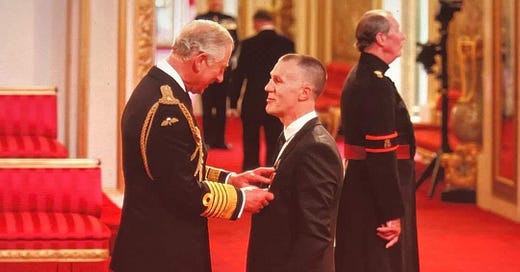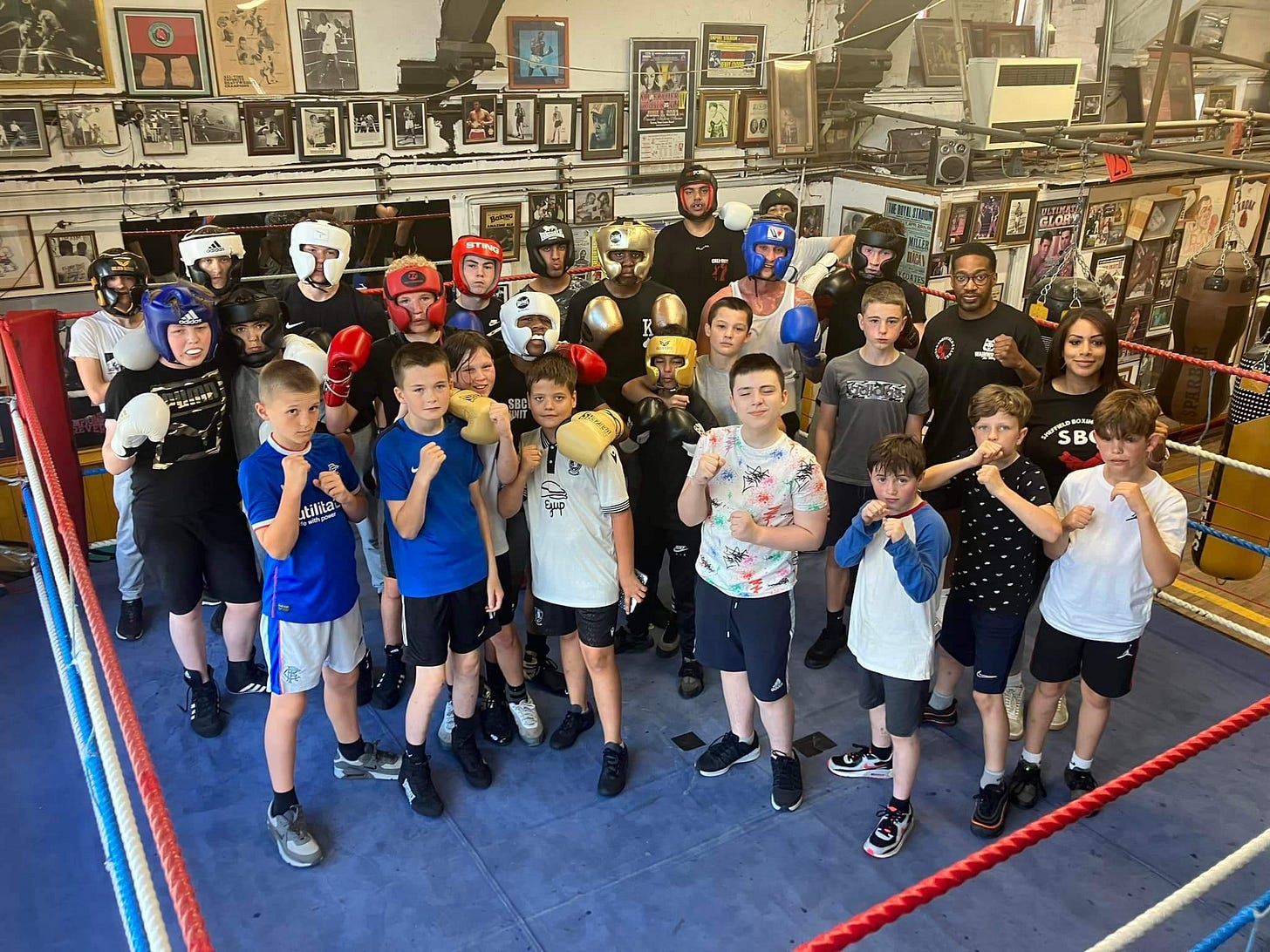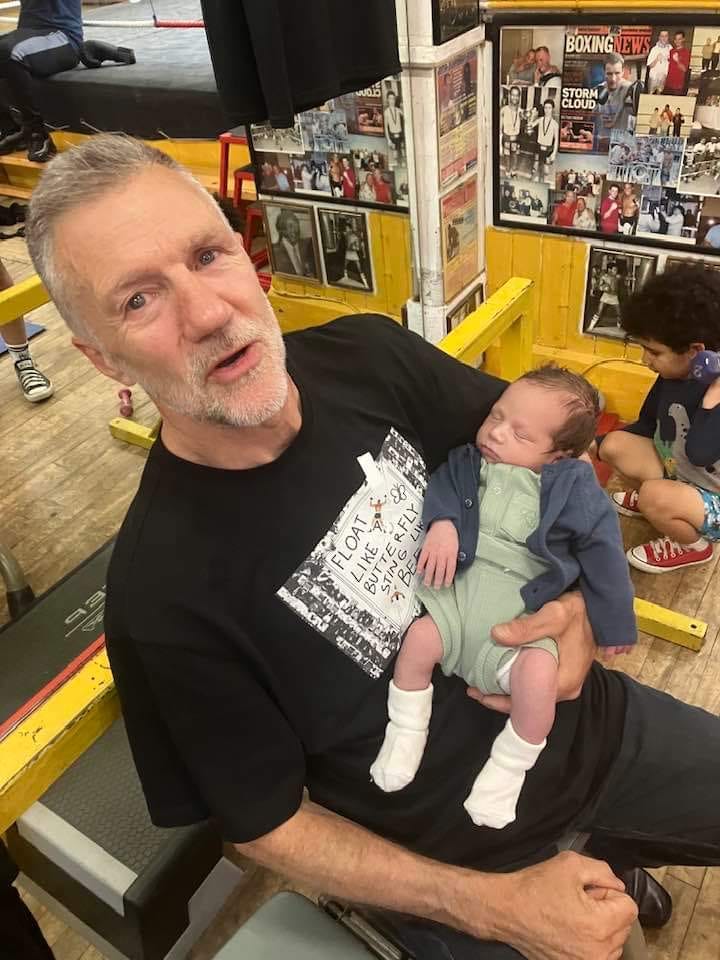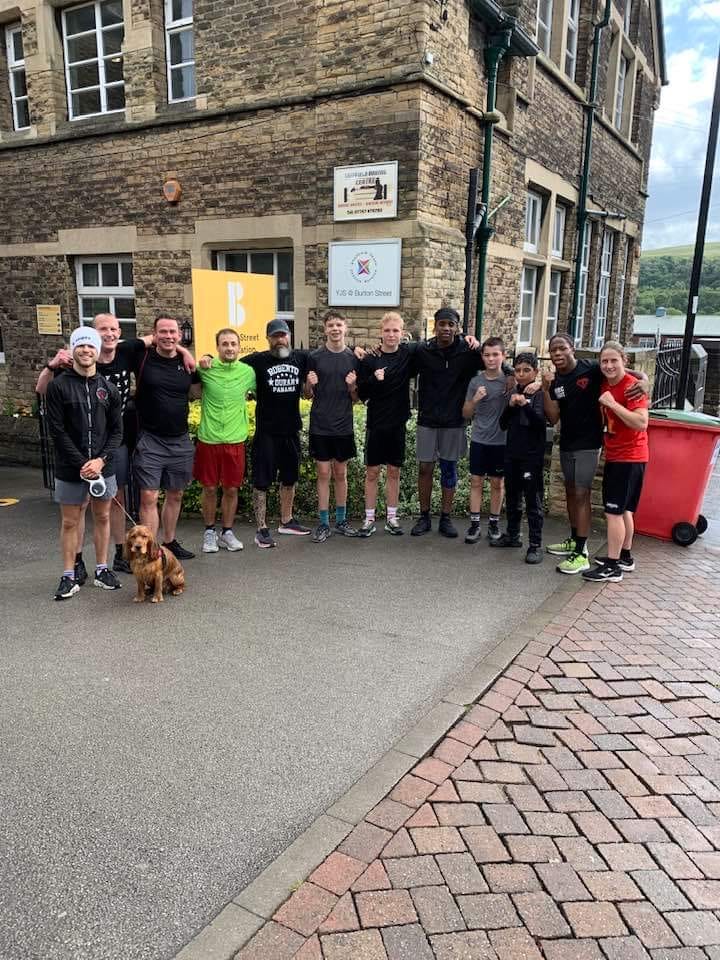Meet Glyn Rhodes MBE, a life in boxing.
Professional boxing trainer, manager, and promoter. Connecting youth with character.
Glyn Rhodes MBE is the Founder and Head Coach of Sheffield Boxing Centre (SBC), today I had a second chance to have a coffee and a chat with Glyn, who's a really important character in our Sheffield boxing community.
Our first chat was great, but I had little understanding of his life in boxing or significance to so many young people, who enjoy the amazing community he has formed around his boxing club.
Glyn gave me a signed copy of his biography, Beyond Good and Evil: Glyn Rhodes MBE, a Life in Boxing which I devoured in a day - this was our second relaxed chat after I’d read the book and had a think about the significance of boxing to our youngsters who often struggle to find their confidence, structure and place in society.
I hope you enjoy listening in…
Here’s a summary of our wide ranging conversation about Glyn's life in boxing, his gym, teaching methods, and the impact boxing has on kids in Sheffield.
Glyn talks about his boxing career, meeting Angelo Dundee, and opening his boxing gym in Sheffield. He emphasises teaching the skills and techniques of boxing, not just fitness.
We discuss Glyn's biography, which tells the story of his life and boxing career. A sports writer, Mark Turley helped put Glyn's writings and stories into a readable book.
Glyn explains his teaching style - asking the kids "why" and getting them engaged and interested in learning. He compares to school where kids are told what to do without explanation.
We talk about boxing helping kids who struggle in mainstream schooling. Glyn has seen many kids go through his gym over the years and says it keeps them out of trouble.
I suggested that Sheffield could do more to support boxing gyms and create opportunities for the kids who come out of them with strong character and skills.
Glyn agrees and says the gyms help guide kids away from gangs and crime. He emphasises the gyms bring value to the city.
This really made me think about the youngsters who find their way into our boxing club communities, what is their background? what draws them to the clubs? what do the clubs do for these kids? how do we square the apparent brutality and risk of the sport with the benefits? What special qualities do these young adults have, coming through these communities and how can we recognise these qualities, and connect them with opportunities to develop a meaningful career as valuable leaders with grit, character and self discipline?
What draws young males from deprived areas into boxing?
For young men in rough areas, boxing holds several strong appeals. First, it provides a physical and emotional outlet in a focused, disciplined environment. The routine, training, and learning to control their aggression gives direction. Second, boxing gyms offer positive male mentorship from coaches which many lack at home. This guidance gives sorely needed stability. Additionally, being a skilled boxer brings respect and reputation on the streets that young men crave. Boxing offers a sense of identity and self-worth. Testing their resilience through such a demanding, tough sport also aligns with masculine ideals. Dreams of going pro represent hope for mobility. With little gear required and gyms nearby, boxing's accessibility removes barriers. Overall, the nature of boxing caters directly to physical and psychological needs of disadvantaged urban males.
While the risks should be weighed, boxing clearly offers an appeal aligned with the needs and desires of young males from inner cities searching for an expressive outlet, identity, and mentorship. Providing this in a safe and constructive way should be the goal.
What do boxing clubs do for youngsters from deprived city areas?
Urban boxing clubs do a lot for troubled teens. Workouts and training take up free time so they stay out of trouble. Instead of drugs or crime, boxing gives them productive goals to strive for. Coaches provide guidance in and out of the ring. They act like mentors with life advice. Boxing also builds young people up. Mastering new skills gives them pride and confidence. Doing well in tournaments is a big esteem booster. Boxing gyms become like a second family. Kids feel they belong somewhere positive. This community support makes a huge difference. Teens gain people to look up to and hold them accountable. Overall, boxing cultivates discipline and opportunities that set disadvantaged youth up for success.
Overall, boxing gyms can be invaluable for channeling energy into a productive passion, steering kids away from risk, and helping them gain skills to succeed. A supportive community makes a big difference in developing disadvantaged youth.
How do we balance the risks and benefits of boxing?
Boxing does carry inherent physical risks, especially for young people. However, coaches and programs can take important steps to minimise harm. Using protective gear, closely supervising training, and teaching safe techniques all help reduce injuries. Requiring medical clearance exams screens out unhealthy participants. Setting minimum age guidelines prevents young kids from full sparring. Coaches should also promote non-contact forms of training for beginners before sparring. Educating parents and youth on potential dangers ensures informed decisions about risks versus rewards. Maintaining a fun, skill-building focus rather than competitive intensity keeps things developmentally appropriate. With proper safety measures in place, boxing can provide immense benefits for at-risk youth under careful guidance.
With proper precautions and age-appropriate programs, the developmental benefits can outweigh risks. Safety should be the top priority, especially for disadvantaged youth with limited options. A balanced approach allows boxing to enrich lives if done responsibly.
How can we bridge boxing culture with wider society?
Urban boxing gyms often remain isolated from wider recognition and aspiration. To improve this, gyms can volunteer to do demonstrations and teach basics at schools and community centers. Getting high-profile business, political, and religious leaders to attend events brings important visibility. Building media partnerships to spotlight positive stories shows the benefits. Collaborating with schools identifies at-risk youth who can gain mentoring through boxing in after-school programs. Hosting fundraising exhibitions for community causes attracts support. Profiling exceptional student boxers who succeed academically and athletically inspires more youth. Forming a city youth boxing league connects communities. Finally, awards programs recognising coaches and youth who exemplify community values elevates their status as role models. More engagement like this can transform boxing's reputation and lift youth aspirations.
The key is creating more touch points between boxing gyms and the wider community to open doors, change perceptions, and showcase the benefits. More engagement and recognition can motivate youth boxers to keep striving high both in and outside the ring.
How can disadvantaged youth become assets to society?
Boxing teaches inner city kids grit and self-discipline. Earning boxing achievements builds their confidence to aim high and work hard. Teamwork with coaches and at the gym provides community awareness. Pushing through fatigue and pain develops mental fortitude to handle stress. Good listening skills foster communication. Admitting weaknesses requires humility to keep learning. Boxing's fair play nurtures respect for others. With coaching, these youth gain resilience and character to become leaders and give back.
If positively nurtured, these young men can bring their unique strength of character back to inspire and guide the next generation in their communities. Their journey can inform leadership, coaching, mentoring and teaching roles.
How can we expand opportunities for young boxers?
Scholarships for college and trade schools boost boxers' access to education. Pairing boxers with career mentors like in leadership, business, or healthcare expands perspectives. Internships offer hands-on professional experience and networking. Job skills training in areas like public speaking and interviewing improves employability. Travel to new places, people and cultural sites broadens horizons. Leadership conferences build teamwork and ethics. Volunteering develops civic duty. Community networks provide support and connections. Showcase events let boxers demonstrate skills and share stories to inspire.
Providing additional training, experiences and networks beyond the boxing gym can help talented young men maximise their potential to succeed in school, careers and leadership roles. Every opportunity we provide expands their vision and Sheffield’s future.
What Can I do?
Here are 3 actionable steps a compassionate Sheffielder could take to create a positive difference in our city :
Volunteer with a local boxing gym or youth program. Get involved directly by donating your time to mentor and guide at-risk youth. You could help supervise training sessions, assist coaches, or simply be a positive role model. This allows you to connect with the kids and understand their struggles.
Organise a community fundraiser for boxing gyms. This could be a charity event, donation drive, or online fundraiser to help provide equipment, offset membership fees, and expand capacity of gyms. Bring together businesses, leaders, and residents to support the gyms financially.
Start an initiative to connect boxing gyms with schools and youth programs. You could coordinate events where boxers give demos and inspire students at local schools. Or set up a mentoring program to pair boxers with at-risk teens in need of guidance. Bridging these worlds allows more kids to benefit from boxing's lessons.
The key is getting involved either through direct volunteering, providing financial support, or linking the boxing and wider communities. Taking compassionate action to expand opportunities for the youth can make a real difference in Sheffield.
I hope you enjoyed this insight into the boxing community in Sheffield. It was a surprise to me, to see the depth of care these leaders bring to our displaced youth, and I’m shocked that we’re not more involved in supporting their success.
If you know of inspiring characters, doing their thing across Sheffield, largely unnoticed but dramatically creating a positive difference, please introduce us to them - we want to listen and connect with their stories.
As a personal postscript - I followed my own advice, and helped to make Glyn’s amazing biography more accessible by producing a version for Audible - click on the pic for a free preview.









